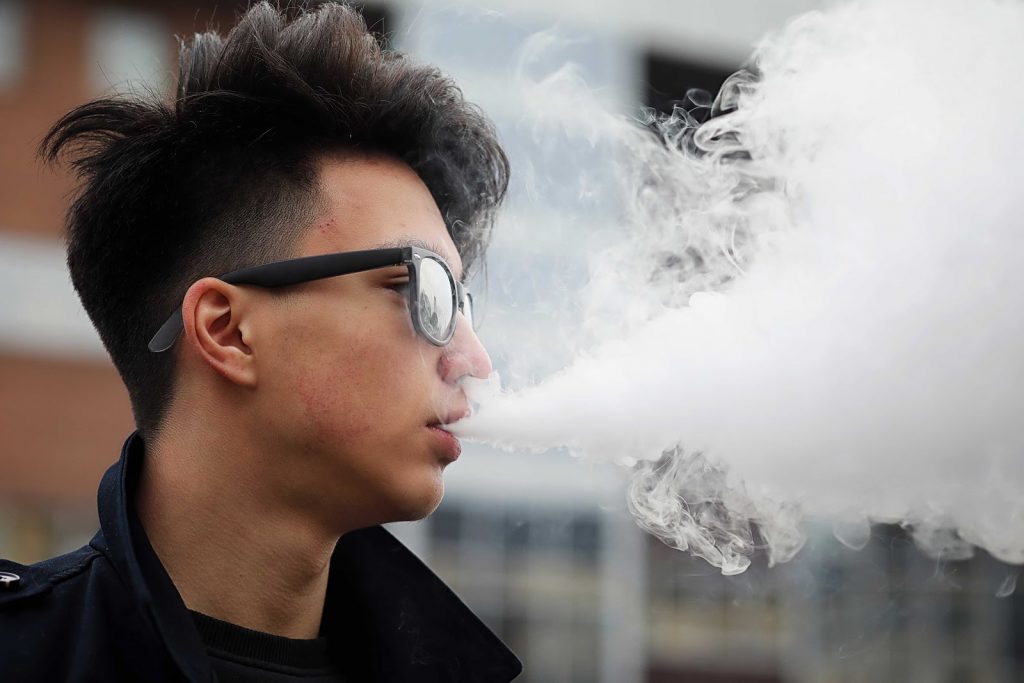This is a question we commonly ask ourselves when we think about our past and any regrets we might have.
In a recent article on ST, first published on NYTimes, author Jeneen Interlandi pondered just that. For her, the main regret was that she picked up smoking when she was just 15, blaming government bodies for not doing enough then to prevent underage smoking, or to make it less accessible for teens.
She went on to raise today’s state of affairs, claiming that even today, underage smoking is rampant, and perhaps made more prevalent due to alternative tobacco products like e-cigarettes, often wrongfully labelled a “gateway drug”.
In Singapore, e-cigarettes (or vapes), have been banned alongside Heat-Not-Burn also known as heated tobacco products. The general sentiment echoes that of Ms Interlandi: that these products should remain banned because the impressionable youths who use them might eventually move on to conventional cigarettes or even drugs, both of which have substantially negative health effects.
Ensuring that ‘the future’ is no less than a perfect one for our children and youth is an argument we’ve heard countless times for any hot topic, good or bad.
Insurance agents want us to buy life policies so that our offspring will have a healthy sum to tide them by difficult periods. Environmentalists want us to fight the war against climate change, so our grandchildren can experience the lush greens and the snow caps just as we have.
Now, we are taking away a legitimate way of getting people to quit smoking, just so youths won’t start smoking.

Take someone like me for example.
I am ambivalent towards smoking, which is to say I neither hate nor enjoy the smell of cigarettes. Even though I have been pressured my whole life to smoke, I have never picked it up.
From my years in poly when the cooler kids would try and persuade me to pick up smoking, to being called a pussy for not hanging out in the yellow boxes in my army camp, and even at work, where I would be left out of conversations between my colleagues who try to write and smoke like Jack Kerouac. In the end, I’ve decided that smoking is not for me, because of the strain on my finances and my health in the long run.
To this end, anti-smoking campaigns have been hugely successful. Apart from me, there continue to be many Singaporeans who have been given the opportunity to pick up smoking, only to turn it down.
Even then, people like myself—the non-smokers who embrace the smoking habits of their peers—still lose out. We are still regular consumers of second-hand smoke, a hazardous byproduct in conventional cigarettes that isn’t produced by e-cigarettes and heated tobacco products.
So yes, anti-smoking and ‘I Quit’ campaigns work. But they don’t work for everyone. And as smokers continue to smoke, we need to start looking more seriously at alternative solutions.

First, smoking cessation rates will increase. This will then reduce the amount of second-hand smoke in the environment. Accordingly, non-smokers such as myself will benefit from being in a smoke-free environment.
To get to this point, we need to recognise that smoking isn’t as straightforward as it is often made out to be. There are many variables as to why people start smoking, and smoking e-cigarettes doesn’t necessarily set you on the path of becoming a smoker.
These thoughts were echoed by Professor Kenneth Warner, Dean Emeritus of University of Michigan School of Public Health at a recent Public Health Thought Leadership Dialogue at the National University of Singapore (NUS).
He asserted the fact that no one even knows for sure that the children who smoke e-cigarettes will eventually become smokers.
“If you look at the data, they have a 3.5 higher risk of trying a cigarette in the next 6-18 months. But if you look at the data in some of those studies, that means that they try 1 or 2 cigarettes over a year. That’s not becoming a smoker,” he concluded, drawing the distinction between consuming a cigarette versus becoming an consistent, habitual smoker.
Therefore, to ban e-cigarettes on purely the ‘gateway drug’ premise makes little sense.
Besides, if a child truly wanted to rebel, banning e-cigarettes would not be enough; far more controversial substances have found their way into the hands of youths. Bans, health scare tactics, and plain packaging won’t offer much in the way of stopping them. If there’s one thing we know about those bent on rebelling, it is that they relish having obstacles in their way, just so they can knock them down.
In the final paragraph of Ms Interlandi’s opinion piece, she mentions that although she takes full responsibility for choosing to smoke, she wishes there had been measures in place to make smoking less accessible for her when she was younger and perhaps more impressionable. She then ends the piece, declaring her hopes that teenagers of today would have a safer environment to live in.

As much as the welfare of today’s youth is important, let us not forget about those who are currently cigarette smokers. A good amount of them want to quit, but find it too difficult to do so.
Alternative tobacco products can also serve as a way for smokers to quit smoking conventional cigarettes. In England, smoking cessation rates in 2018 were the highest ever, and the success has been attributed to the introduction and legalisation of e-cigarettes as well as heated tobacco products.
By going on the offensive and banning alternative tobacco products in the hopes that we can protect the next generations of would-be smokers, we are taking away what has proven to be one of the more realistic and effective methods of smoking cessation that we’ve come across as a species. To put it bluntly, this is as good as handing current smokers a death sentence.
Or as Professor Kenneth Warner put it in the recent NUS Dialogue, the “likely benefit to adult smokers in terms of helping them to quit substantially outweighs the risk to young people starting nicotine use.”
So if there’s even a fighting chance that e-cigarettes and heated tobacco might help smokers quit, is the government not morally obligated to offer them that alternative?
The last thing any of us want would be to look at that relative who never quite managed to quit smoking, on his deathbed, spending the last few hours of his life pondering that very same question: “What if?”






